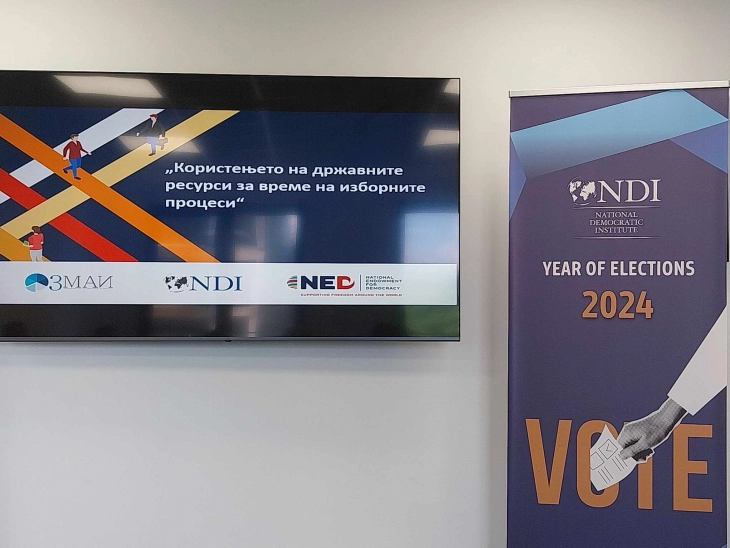Research: Marked increase in temporary jobs, consultancy services when governments change
- Electoral processes influence the number of temporary jobs and consulting services in the public sector, but the most notable increase is when governments change, according to research findings presented Thursday by the ZMAI Association for Research and Analysis as part of a project on monitoring potential abuse of state resources.
- Post By Magdalena Reed
- 15:12, 30 May, 2024

Skopje, 30 May 2024 (MIA) — Electoral processes influence the number of temporary jobs and consulting services in the public sector, but the most notable increase is when governments change, according to research findings presented Thursday by the ZMAI Association for Research and Analysis as part of a project on monitoring potential abuse of state resources.
The findings confirm public sentiment regarding public sector employment following any change in power, the researchers noted.
They saw a marked increase in temporary jobs and consultancy services when new governments were formed.
Over time, the number of these jobs usually decreased, which can be attributed to the transformation of temporary employment into permanent employment and civil servant status, the researchers said.

ZMAI director Viktor Mitevski said different governments gravitated to different ways of hiring people.
From 2010 to 2016, there were many more consulting services contracts than temporary employment ones. When the government changed, the number of temporary jobs rose.
Mitevski also noted that a year after any election cycle, the number of permanent jobs in the public sector usually increased.
He said contracts for consulting services were also frequent. Their number sharply fell, however, when an institution closed.
"When the Public Procurement Council and the Special Public Prosecutor's Office were formed after 2016, we noticed a tenfold increase in this kind of contractual services. After their closure, this trend dropped to pre-2016 levels," Mitevski said.

He said they had not noticed a trend of new governments firing people on temporary contracts. He said this type of contracts typically "have a downward trend, except in post-election periods."
"But we will see a clearer picture of this when the Ministry of Information Society and Administration makes available to us their employment plan reports," Mitevski said.
He said it was "difficult to monitor the fragmented system" and local government spending. "Apart from the treasury system that shows the expenditures, there is no central database for all other processes," Mitevski said.
He also pointed out that the country's public health care was not part of the Ministry of Finance's treasury system. "Unfortunately, all these trends we see in terms of spending do not include health care institutions. If there is something we should aim for going forward as a system, as a civil sector, it is to achieve greater financial openness in health care," he said.

According to Robert Scott Heaslet, senior resident director for the National Democratic Institute for International Affairs (NDI) in North Macedonia, abuse of state resources undermines the principles of good governance, equality and justice, leading to widespread negative consequences for society.
Heaslet said abuse of state resources undermined the rule of law, ethical standards, economic growth, and trust in institutions. Vulnerable communities were underserved when funds were diverted to a few select groups. Also, when state resources were used for political purposes, it could distort election results, he said.
To improve the management of state resporces, he added, a new interactive platform would be developed using publicly available data and cross-referencing it to identify the impact of electoral processes on public procurement, public sector employment and political party financing.
This is the first analysis of the impact of elections on public sector employment, consulting and other contractual services. It was based on publicly available data on budget transactions from open.finance.gov.mk from 2010 to 2023 – excluding data on public health care and Health Insurance Fund expenditures, which was unavailable — and on permanent employment data from the Ministry of Information Society and Administration between 2015 and 2023.
The research was supported by the National Democratic Institute and funded by the National Endowment for Democracy. mr/







